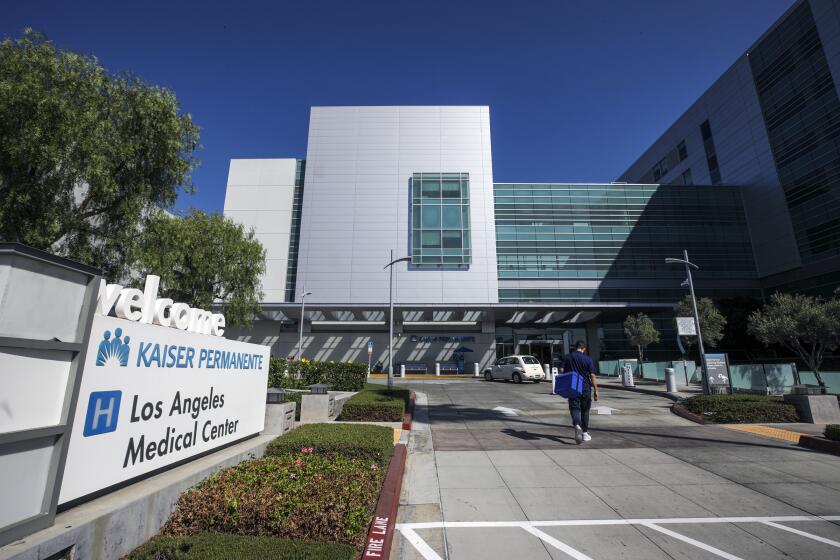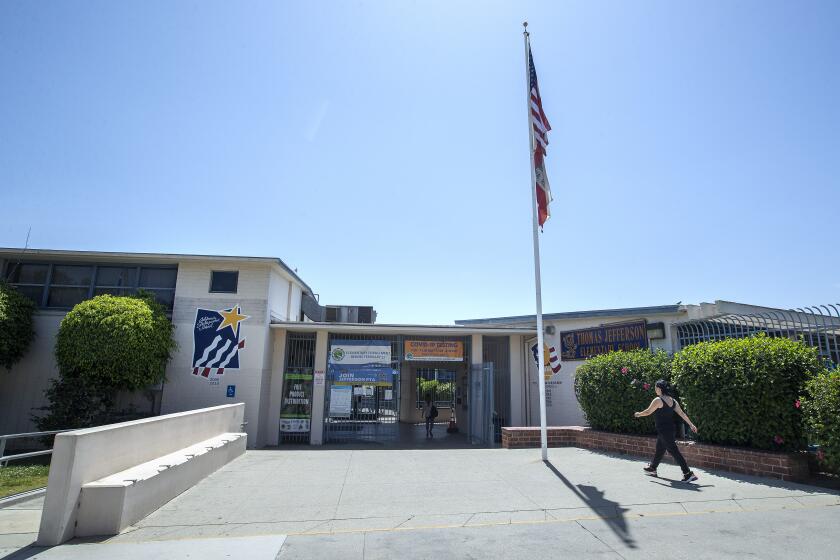Steamed at Villaraigosa, L.A. City Council to review his electric rate hikes
The Los Angeles City Council voted unanimously Tuesday to review Mayor Antonio Villaraigosa’s proposed package of electric rate hikes, taking the mayor to task for suggesting that defeat of the plan would plunge the city into bankruptcy.
On a 15-0 vote, the council asserted jurisdiction over the Department of Water and Power board’s decision to approve the first of four increases over the next year to help pay for renewable energy and other expenditures.
Several council members said they were disturbed by Villaraigosa’s warning, sent to them in writing the night before the vote, that a rejection of the rate hikes would cause the DWP to renege on its plan to provide $73 million to the city’s strained general fund, which pays for such basic services as public safety and parks.
Failure to receive that money over the next four months would cause the general fund to “run out of cash” by June 30, Villaraigosa’s briefing paper said.
“I think this kind of statement is irresponsible,” said Councilman Ed Reyes, who grilled Matt Szabo, Villaraigosa’s deputy chief of staff, over the mayor’s warning.
Szabo defended the document, telling Reyes that the mayor had a responsibility to “lay out the actual consequences” of rejecting the proposal. Villaraigosa’s report said a council vote against the rate hikes would be “the most immediate and direct route to bankruptcy the city could pursue.”
Once he saw Villaraigosa’s report, City Administrative Officer Miguel Santana, the city’s top budget advisor, left the council meeting to confer with the mayor personally. When he returned, he tried to reassure the council that the mayor does not support a bankruptcy filing.
The warning was less upbeat than Villaraigosa’s other arguments in favor of the rate hikes, which would boost residential bills by 9% to 28% by April 2011, depending on where customers live and how much power they consume.
When the proposal was first mentioned two months ago, Villaraigosa and his staff pitched it as an environmentally friendly initiative that would wean the DWP off dirtier coal. Weeks later, the mayor said the extra revenue also would help the utility cover rising coal costs and renewable energy contracts signed by his administration since 2005.
Villaraigosa also said the money would pay for new renewable energy projects and aggressive conservation measures, helping to create 18,000 jobs.
That promise has not reassured business leaders, who warned that they will have to lay off their own workers if Villaraigosa succeeds in imposing a 21% to 22% rate hike on companies.
“We’ve already looked at alternatives, like moving to Vernon, if that’s what we need to do,” said Larry Piles, general warehouse manager for Showa Marine & Cold Storage.
The DWP’s initial rate hike is scheduled to go into effect on April 1. The council is scheduled to vote on the proposal next week.
Although business leaders gave the plan negative reviews, union organizers and environmentalists spoke in favor, saying the rate increases would help the city avoid state financial penalties that are looming for users of coal power. They praised the mayor’s effort to create renewable energy jobs, such as “green doctors” who would assess a home’s energy efficiency.
“There is no other issue that my organization sees as more important to vote on,” said Gary Parker, an organizer with the International Brotherhood of Electrical Workers Local 11.
Shortly before the vote, former Vice President Al Gore announced his support for the plan.
Villaraigosa said the increases would help the DWP avoid a downgrade in its credit rating, which would increase the cost of borrowing. On Monday, he drew his first explicit connection between the rate hike and the city’s budget crisis, which could lead to 4,000 layoffs.
Without a $73-million transfer from the DWP, the city would no longer be able to pay its bills, sending the city into a “financial tailspin,” his report said.
Although the DWP was scheduled to provide at least $220 million to the general fund for this year, the utility has sent $147 million so far. Asked about that partial payment in February, DWP Interim General Manager S. David Freeman told The Times that the utility was “completely committed” to providing the rest and saw no connection between the transfer and the proposed rate hike.
Last week, however, Freeman warned that the utility would think twice about making additional payments to the city budget if the rate hikes are rejected. He made that remark after warning that a credit downgrade would cost the utility up to $80 million per year.
“It was clear that when they only gave us part of the money, they were going to hold the $73 million hostage,” Councilman Bernard C. Parks said.
Freeman has also said that if the hikes were approved, his agency would find an extra $20 million for the city budget.
“I guess that’s what you call sweetening the pot,” Councilwoman Jan Perry said.
More to Read
Start your day right
Sign up for Essential California for news, features and recommendations from the L.A. Times and beyond in your inbox six days a week.
You may occasionally receive promotional content from the Los Angeles Times.








